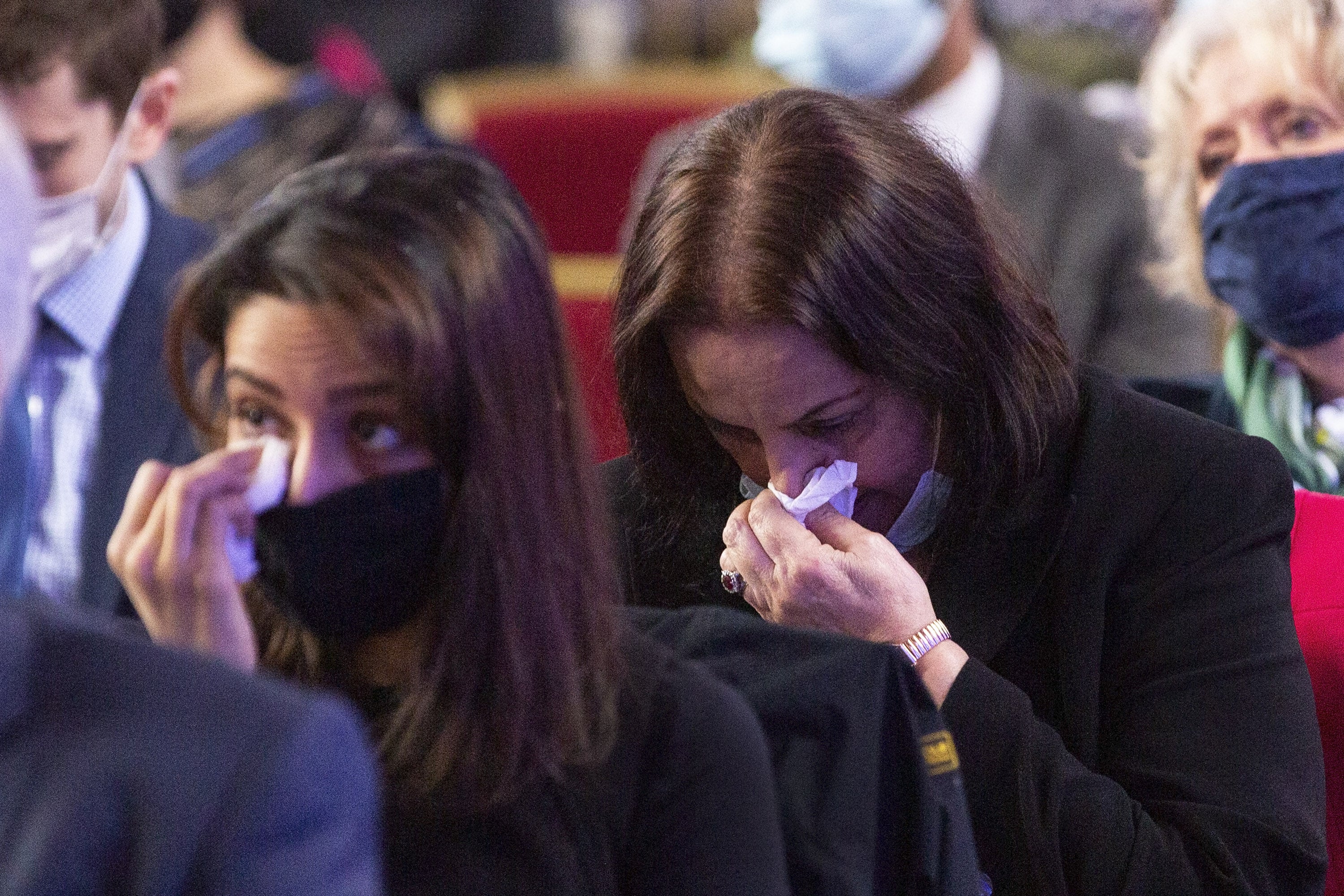Families honour doctors who died in pandemic at memorial service
The British Medical Association held a Covid-19 memorial service to remember the 50 doctors who lost their lives to Covid.

Families of doctors who died during the pandemic have paid tribute to them at a memorial service in London.
Members of the British Medical Association came together at BMA House in Fitzrovia to remember the 50 doctors who lost their lives as the country battled Covid-19.
A minute’s silence, music and speeches from BMA staff members, including their council chairman Dr Chaand Nagpaul, took place.
Liza Harry, a 52-year-old paediatrician from Worcestershire, came to the ceremony to remember her husband, Shree Vishna Rasiah, who died aged 48.
She said his death was a “terrible shock” for her as he had been “perfectly healthy before and he was so young”.
The pair met when they were both training in neonatology on the Jessop Wing at Sheffield Hospital and she said that it was his “dedication, hard work and depth of caring that really attracted me to him”.
With tears in her eyes, she told the PA news agency: “It was painful to hear his name in the ceremony, in fact, all the names.
“The music was beautiful and it was good to be here for the ceremony. We came because of him, to honour him.”
Dr Nagpaul spoke about how many of those who died were from an ethnic minority group and had an interest in the arts, “beyond the world of medicine,” with some having a love for painting, writing and music.
The arts played a central part in the ceremony, with members of the Royal Philharmonic Orchestra and Burntwood School closing the service with the song, We Will Remember, We Can’t Forget, which was composed and conducted by Paul K Joyce.
Mr Joyce, 64, who lives in Devon, told PA the group had one half-hour rehearsal in preparation for Wednesday’s ceremony, adding that he felt compelled to take part because his father was a GP and his mother was a nurse.
“These people in the room and their relatives put their lives on the line for the care of people who were strangers to them, but such was their level of care and interest of the health of others. They made such an incredible sacrifice,” he added.
Mr Joyce said he felt “humbled” that his music was commissioned and that “it makes me cry every time I hear it”.
The BMA also commissioned a sculpture made out of stone and stainless steel dowels to honour those who died, which will remain in the courtyard of BMA House.
Bookmark popover
Removed from bookmarks